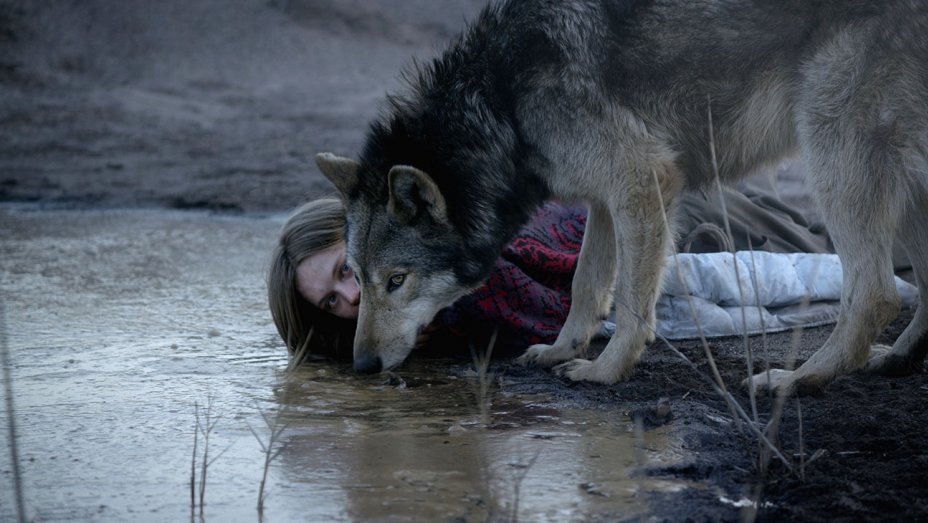Nicolette Krebitz was born and raised in Berlin. After graduating from the National Ballet School, she studied acting at The Fritz Kirchhoff School in Berlin until 1992. Afterwards, she worked in German film and television productions as an actress. Since 2000, she also has been working as a writer and director. Krebitz’s credits include “Jeans” and “Das Herz ist ein dunkler Wald.”
“Wild” premiered at the 2016 BFI London Film Festival on October 6.
W&H: Describe the film for us in your own words.
NK: “Wild” is the story of a young woman who, on her way to work, sees a wolf in the park. They lock eyes and something inside of her tells her that from now on nothing will be the same again. She tries to see him again, waits for him, and she even leaves raw meat for him to eat. [Finally, she] starts hunting him, [but not to kill him]. She succeeds [in capturing him,] and manages to get the wild animal in her high-rise apartment.
What happens then with her, and with the audience as well, is a very sensual [experience]. I don’t really want to give away to much — to direct you through the movie or how you should understand it. You should be able to experience it the way you need it.
W&H: What drew you to this story?
NK: I dreamed of a wolf. You know, when I started writing, the first wolves were coming back to Germany after being gone for almost hundred years.
W&H: What do you want people to think about when they are leaving the theater?
NK: I’ve heard this movie kind of clears the field a little bit — you are somehow able to look at other people in a new way after you’ve seen it. Especially between men and women — there are tons of gender and social [divides] between us that doesn’t really help when you try to connect with someone. And that’s what we want, right? To be connected?
W&H: What was the biggest challenge in making the film?
NK: With a script that’s working on a lot of subconscious levels it was hard to find a producer. The plot sounded impossible and dangerous. But the real beauty and challenge was to get what the movie really is about. And I found two people without whom I could have never done it: my producer Bettina Brokemper and my leading lady Lilith Stangenberg.
W&H: How did you get your film funded? Share some insights into how you got the film made.
NK: My producer took care of the funding. There was no crowdfunding. It was pretty traditional.
W&H: What does it mean for you to have your film play at LFF?
NK: I’m devastated not to be able to be there. London was always my favorite city. I even applied at NFTS once.
W&H: What’s the best and worst advice you’ve received?
NK: Advice doesn’t work at all, I think. Every situation is unique. You don’t need advice — you need love, friends, and partners who support you. Quotes like “Never give up” could lead into total disaster.
W&H: What advice do you have for other female directors?
NK: If someone you depend on wants to sleep with you, kill him.
W&H: Name your favorite woman-directed film and why.
NK: I like Mia Hansen-Løve, Claire Denis, Jane Campion, Lynne Ramsay, Kelly Reichardt, and Angela Schanelec. My favorite movie by a female director is “Twilight” by Catherine Hardwicke.
W&H: Have you seen opportunities for women filmmakers increase over the last year due to the increased attention paid to the issue? If someone asked you what you thought needed to be done to get women more opportunities to direct, what would be your answer?
NK: A quota. 50/50 with money, screen time, places in college, jobs in TV— everything 50/50, at least for the time being, to break it all up a bit.







